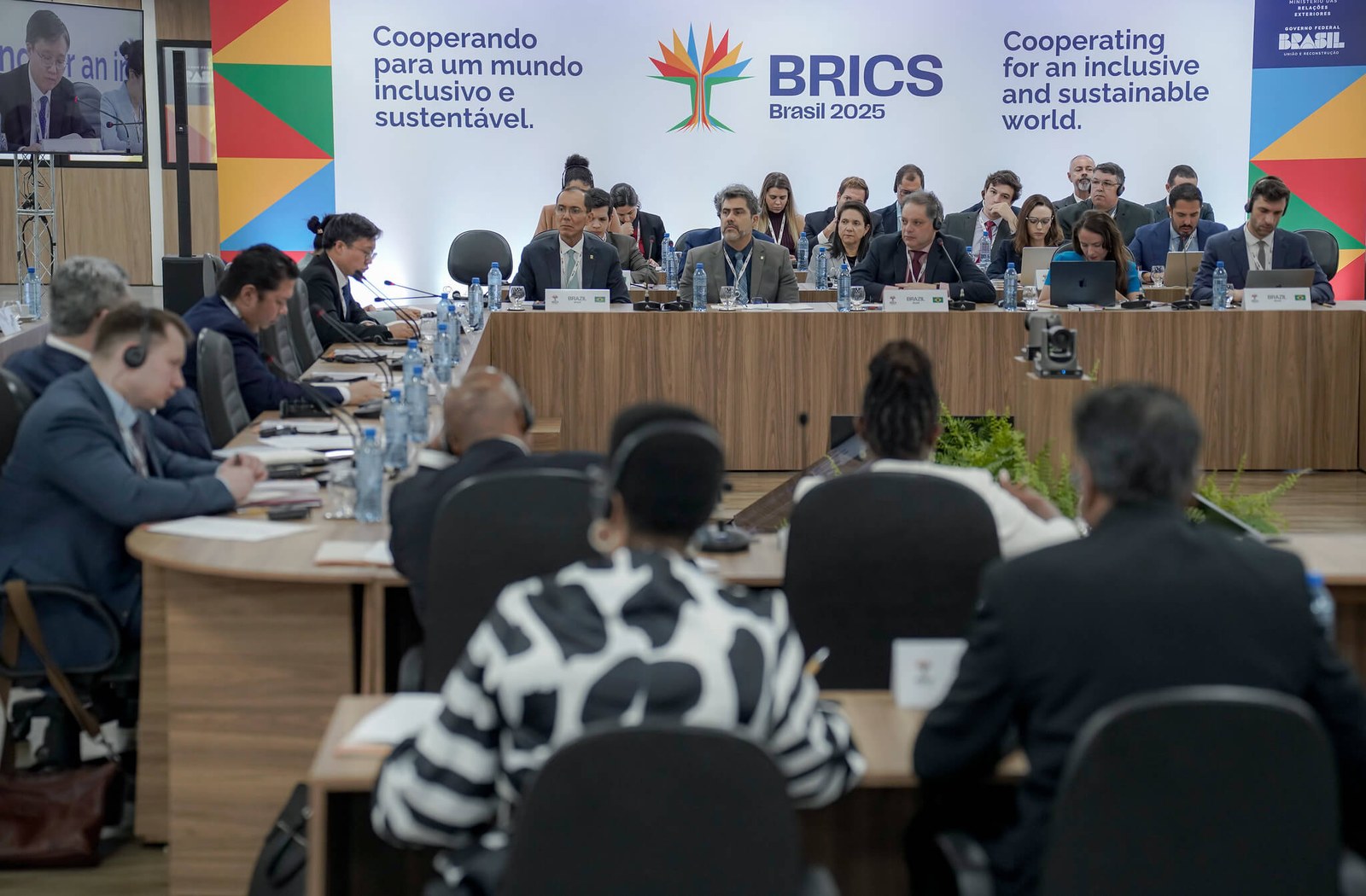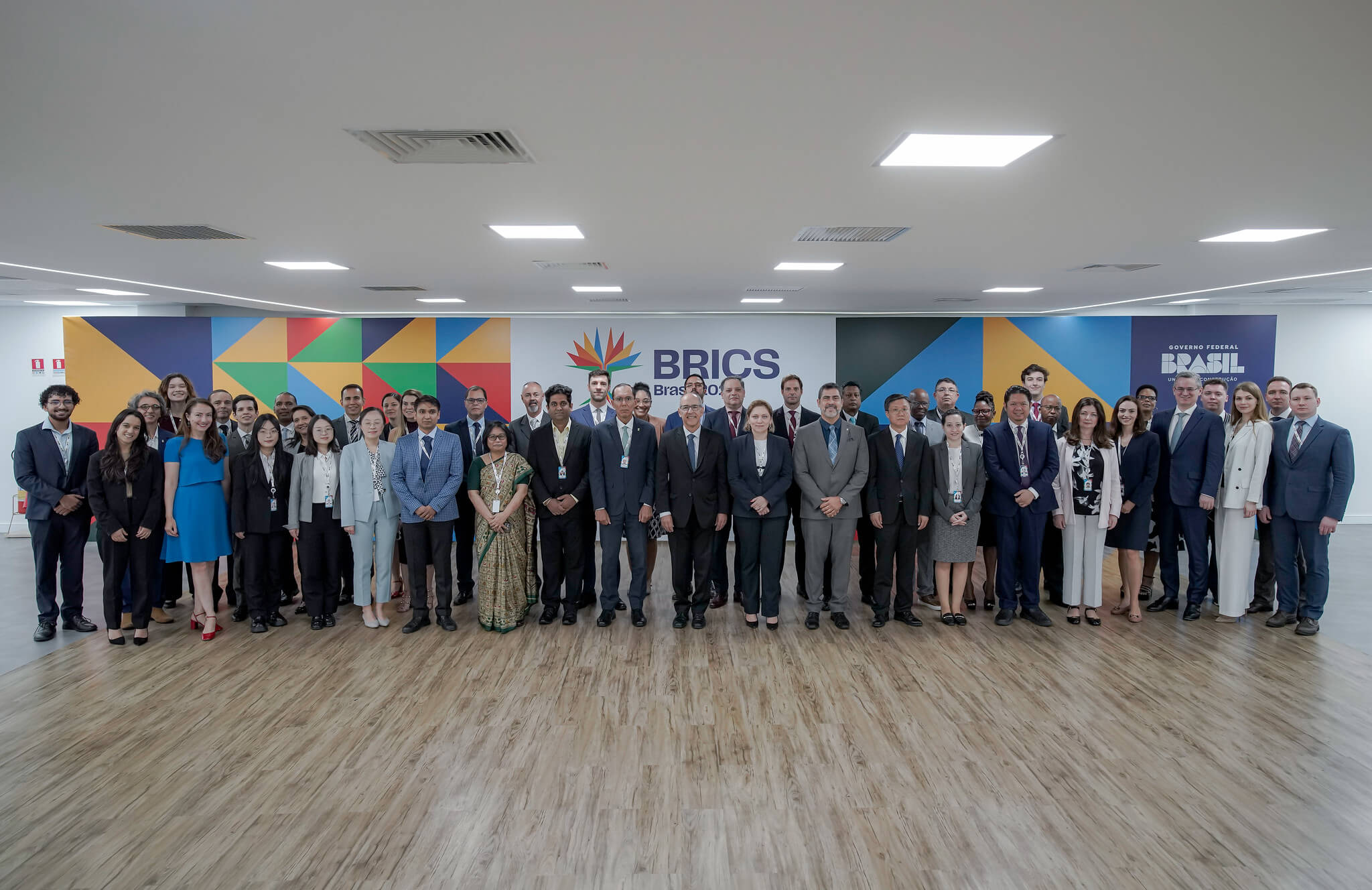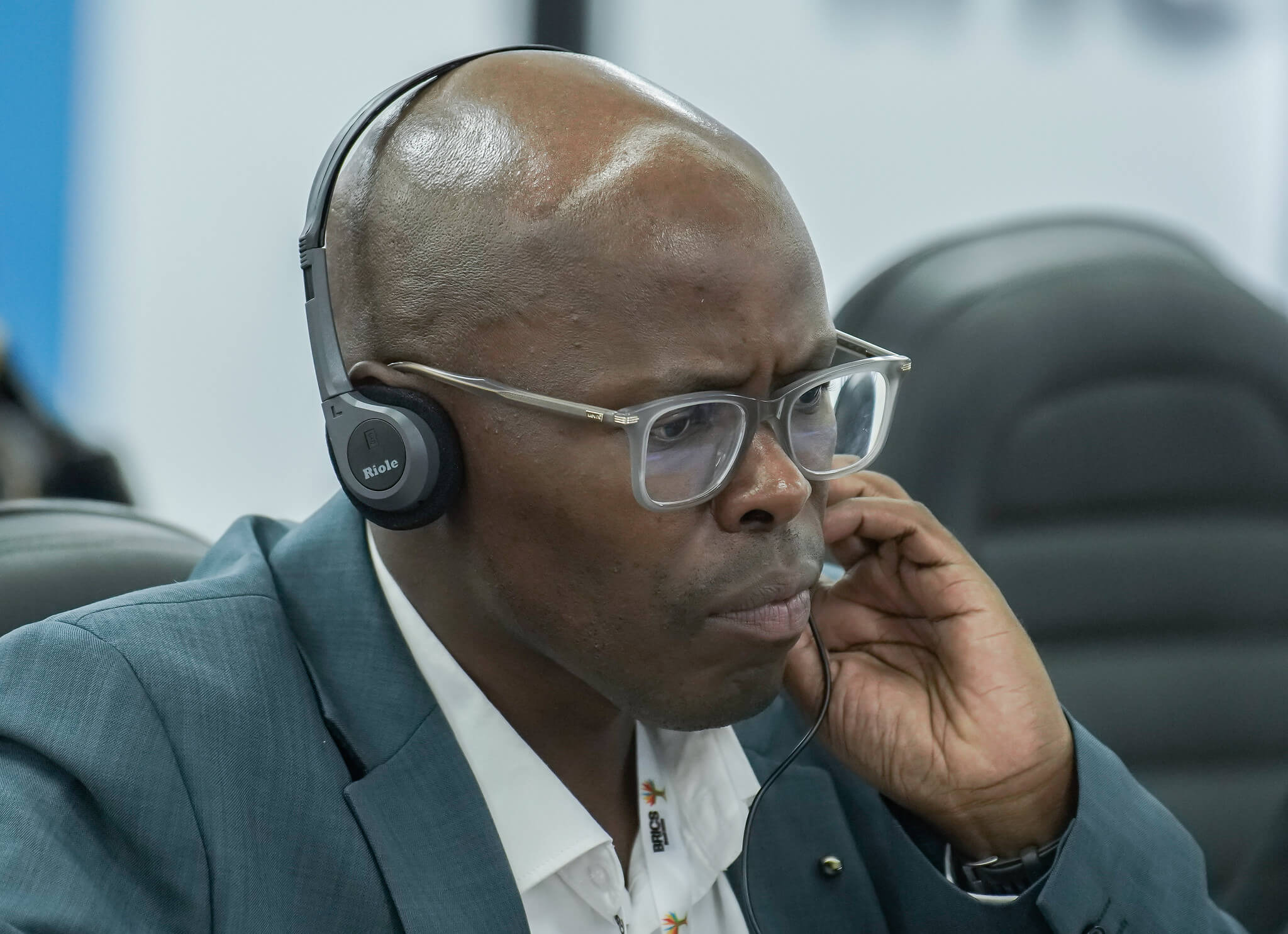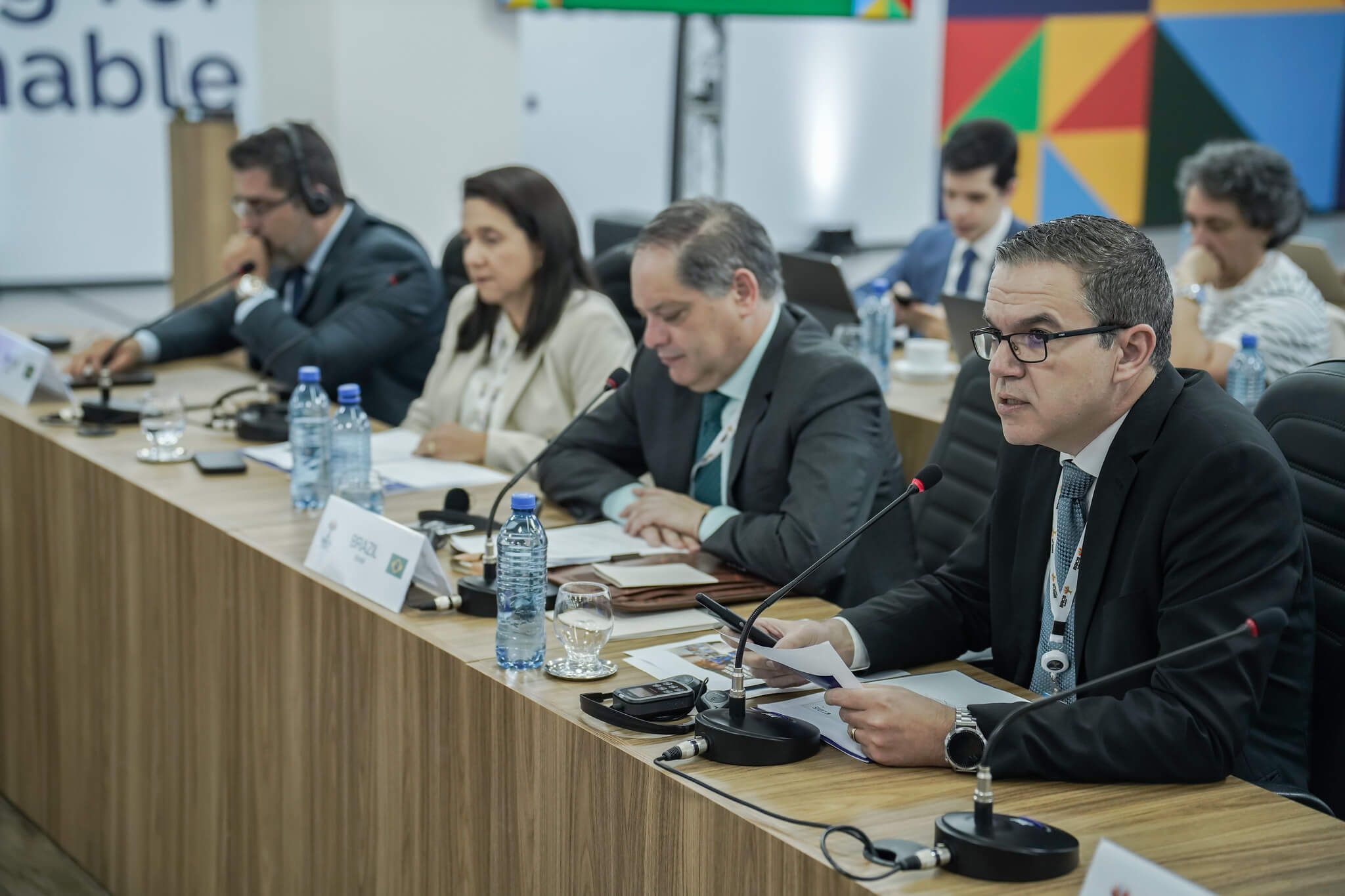BRICS strengthens cooperation on cybersecurity
At a meeting in Brasilia, BRICS countries discussed joint actions to strengthen cybersecurity and promote the sharing of information and best practices. The group aims to reduce dependence on foreign solutions and foster a more inclusive model of digital governance, with an emphasis on swift responses to transnational threats.

By Leandro Molina / leandro.molina@presidencia.gov.br
With the rise in cyberattacks and online crime, discussing cybersecurity has become essential to protecting data and critical infrastructure. A lack of preparedness among companies, governments, and users can lead to financial losses and privacy breaches. In an increasingly digital world, the debate over cyber protection can no longer be overlooked. In this context, BRICS countries took another step toward strengthening collaboration on cybersecurity and information and communication technologies (ICTs) during the 11th in-person Meeting of the Group’s Working Group on the subject, held in Brasilia, Federal District.
The meeting underscored the importance of a joint response to digital challenges, with concrete proposals to strengthen protection against cyber threats and reduce the technological gap among nations. Ambassador Carlos Márcio Bicalho Cozendey, Brasil’s Secretary for Multilateral Political Affairs, stated that BRICS plays a strategic role in building a safer and more inclusive digital environment. “Technological advances, along with the proliferation of vulnerabilities, present challenges for all nations, particularly for developing countries,” he said.
Among the measures discussed by the group are the drafting of a memorandum of understanding between the member countries’ cyber incident response centers, the promotion of research and development of secure technologies, and the creation of direct communication channels among law enforcement agencies to combat cybercrime. “We do not want just statements, but operational results that enable immediate communication in crisis situations. So I believe it is very positive to build this kind of cooperation within BRICS,” assessed Ambassador Cozendey.

Brasil, which currently holds the presidency of the group, also proposed expanding the debate to global forums, such as the UN General Assembly, with the aim of establishing international rules for the peaceful and secure use of ICTs. As cyberattacks rise and dependence on digital systems grows, BRICS' unity on this agenda is becoming increasingly relevant, reinforcing the group’s role as a key player in shaping the future of global technological security
Marcelo Câmara, director of the Department of Strategic Affairs, Defense, and Disarmament at the Brazilian Ministry of Foreign Affairs (Ministério das Relações Exteriores/MRE), which coordinates the BRICS Technology Working Group, emphasized the maturity the group has achieved. “Cybersecurity requires a collective approach, and BRICS, with its diversity, has much to contribute,” he stated. He highlighted that the issue is already being addressed in other forums, such as the UN, but the group can offer practical and inclusive solutions.
André Molina, Secretary of Information Security at the Institutional Security Office of the Presidency of the Republic (Gabinete de Segurança Institucional/GSI), emphasized that BRICS countries face similar threats but at different stages of preparedness. "Some are more advanced, others are still developing, but all suffer from crimes, data breaches, and attacks on critical infrastructure," he explained. The proposal under discussion, he explained, focuses on creating rapid response mechanisms, sharing best practices, and establishing direct points of contact among the nations.
Criminal investigation cooperation was also a key focus of the meeting. Priscila Busnello, a delegate from the Federal Police (Policia Federal/PF) and head of the international cooperation sector for cybercrimes, explained that digital crimes often involve multiple jurisdictions. "A scam can be carried out in Brasil, have victims in Europe, and servers in other continents. Without swift cooperation, it becomes almost impossible to trace the criminals," she said. She mentioned that the ongoing discussion to formalize a memorandum of understanding within BRICS facilitates the exchange of information and mutual legal assistance.
Capacity building and knowledge sharing

Representatives from BRICS countries express confidence in the group’s potential to influence global internet governance. This cooperation is seen as crucial in a world without digital borders, according to Dr. Jabu Mtsweni's assessment from the South African Council for Scientific Research. He highlighted the importance of collaboration among member countries in research and development. “One of the key challenges is overcoming reliance on foreign solutions, particularly in strategic sectors such as cybersecurity. It is about analyzing the geopolitical situation and finding ways to collaborate with our BRICS partners to develop our own local solutions,” Mtsweni stated.
A critical point addressed was the shortage of qualified professionals in Information and Communication Technologies (ICT) security. The South African expert emphasized the importance of unity among the group’s countries for capacity building and knowledge exchange. Jabu Mtsweni highlighted that cooperation among nations with similar realities –particularly in the southern hemisphere– enables more efficient tackling of common challenges. "When we work together, we can do more and become stronger. We have more powerful voices than when acting individually," he stressed.
Cybersecurity and BRICS Academic Cooperation
In a presentation to representatives of BRICS countries, Lisandro Granville, Director-General of the National Network for Education and Research (Rede Nacional de Ensino e Pesquisa/RNP), highlighted the institution’s initiatives in the field of cybersecurity and the importance of academic production for the development of innovative solutions. One of the key highlights of the presentation was an interactive map that locates researchers, postgraduate programs, and cybersecurity study groups in Brasil, making it easier to identify specialists and research areas.

The Director-General of the National Network for Education and Research (Rede Nacional de Ensino e Pesquisa/RNP), emphasized that cybersecurity is a critical issue not only for the Information Technology sector but for society as a whole, with geopolitical implications. “Any new technology comes with vulnerabilities that did not exist before. Cyberattacks can be coordinated among nations or even carried out by individuals with accessible tools,” Granville warned.
Granville also emphasized the importance of academic research to anticipate future challenges, such as quantum computing and post-quantum algorithms, which are not yet a reality in everyday life but require preparation. Regarding collaboration among BRICS countries, he believes that joint production is essential to foster partnerships. “Our goal was to showcase what Brasil has been doing so that other countries can replicate our solutions, just as we can learn from their experiences,” he stated.
The meeting reinforced the group's commitment to promoting joint technological innovation and greater influence in international digital governance, thereby reducing asymmetries with the commitment to advancing operational agreements, such as the creation of direct communication channels and the formalization of partnerships for training and technology sharing.
The group is expected to continue its discussions in the coming months to refine the cooperation mechanisms, with the expectation of concluding the first agreements. Meanwhile, technical teams will work on standardizing protocols and mapping common threats, aiming for a more efficient response from the group to cybercrimes.
English version: Trad. Ana Carolina Cordeiro Miranda.
Proofreading by Enrique Villamil.